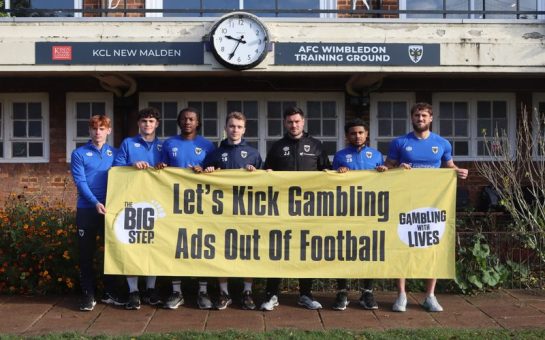Although gambling is by no means a new pastime, the rise of the internet and smartphones over the last couple of decades along with the revision of the UK’s gambling action in the 2000s has meant it’s become much more of a constant in public discourse.
The fact that casino sites and placing bets online has meant that gambling is now more accessible than ever means that understanding why people gamble and how to protect vulnerable gamblers is now more important than ever.
Gone are the days where local bookmakers could just ban someone for their own good because now there are so many avenues available to those that wish to place a bet that banning them altogether is nearly impossible.
Vulnerable Gamblers in the UK
For a long time now casino sites in the UK have been subject to ongoing legislative changes that are designed to protect vulnerable gamblers.
However, according to a study last year by YouGov, around 66% of adults in the UK believe that the gambling industry is not doing enough to protect those that could be susceptible to gambling addiction.
The report itself looked into international attitudes towards gambling and how this compares to the UK.
People taking part in the survey were asked if they agree with the statement “gambling firms don’t take problem gambling seriously”, or which 66% of UK adults agreed.
52% of those questioned from Germany agreed and 59% of French adults were also in agreement.
According to recent statistics, data shows that gambling rates, in general, decreased when you compare September 2021 to September 2020 – which is a great sign for those that are concerned about gambling audiences in general.
However, there are some that believe this is only because gambling actually increased in popularity throughout the start of 2020 as the country was in strict lockdown – and as such, online hobbies and ways to spend time became a much more attractive prospect.
How Can Vulnerable Gamblers Protect Themselves?
Although it is correct that the betting industry, in general, needs to take responsibility for keeping gamblers safe, whilst they are beholden to government legislation and stricter rules are not in place, there is some onus on people to protect themselves too.
In the past, a problem with gambling was somewhat of a taboo and not something that many people were happy to discuss let a lot admit to.
In recent months some headway has been made with this, with social media influencers starting to talk about their own struggles and how they have combated addiction.
With more people happy to be open about what they have been through and how a gambling addiction affected their lives, others are being encouraged to seek help and look at ways they can protect themselves.
For people in the UK that wish to stop gambling but are struggling to do so, there are some ways that you can make life harder for yourself when it comes to placing a bet, which for many people is deterrent enough.
For example, it is possible to speak to your bank and put a blanket ban on gambling transactions being authorised on your debit card – of course, there are ways around this but often the hassle of getting around this is enough to put people off.
Some people even opt to give their debit card to a trusted loved one around payday, which is when many people find the urge to gamble the strongest.
The betting industry also works with GamStop – a free online self-exclusion service. This allows you to register yourself to be banned from using websites and apps that are licensed within the UK.
Of course, this is another one that there are ways around but it is about taking away some of the accessibility and making it just that little bit harder to place a bet.
Is The UK Doing Enough?
Whether the UK is doing enough to protect gamblers is probably a matter of opinion.
There are certainly plenty of legislation rules and guidance in place which encourages the gambling industry to look after their clients and ensure that people are getting themselves into trouble by betting too much or in the wrong way.
There will be some gamblers that these rules have helped and therefore they will say that it is enough, but others will still be struggling and feel as though more help should be given.
With 66% of UK adults of the opinion that the betting industry should do more to protect vulnerable gamblers, there are certainly plenty of people that feel more steps should be put in place to protect those that are vulnerable.
One thing that most certainly hasn’t helped is the Covid-19 pandemic that we’re still learning to cope with as a country.
Not only did this result in more people stuck at home for long periods without things to do, but it also meant a decline in mental health for some – which would have led to things like gambling as a coping mechanism.
This is something that is a relatively recent development and therefore something that we weren’t really equipped for in the UK.
What Changes Could We See in the Future?
There have been recent regulation changes that have seen online casinos needing to adapt the way that they present games to customers and how these games are played out.
A lot of this is around making sure that the player is kept aware of how long they have been playing and how much they have spent – with the responsibility placed on the gambler to say enough is enough.
Although this is effective for some, many people believe that the future of UK gambling legislation will place more responsibility at the door of online casino operators.
Currently, they are expected to check the ID of players, not allow betting via credit cards and of course, keep an eye on those that show a pattern of problem gambling.
However, there are still plenty of people within the UK that struggle with gambling and being able to do so in a way that is both safe and fun.
In the future, we may well see online casinos expected to do more to stop vulnerable people from being able to use their services and offer them help and support when it becomes clear that their gambling habit has developed into a problem.



